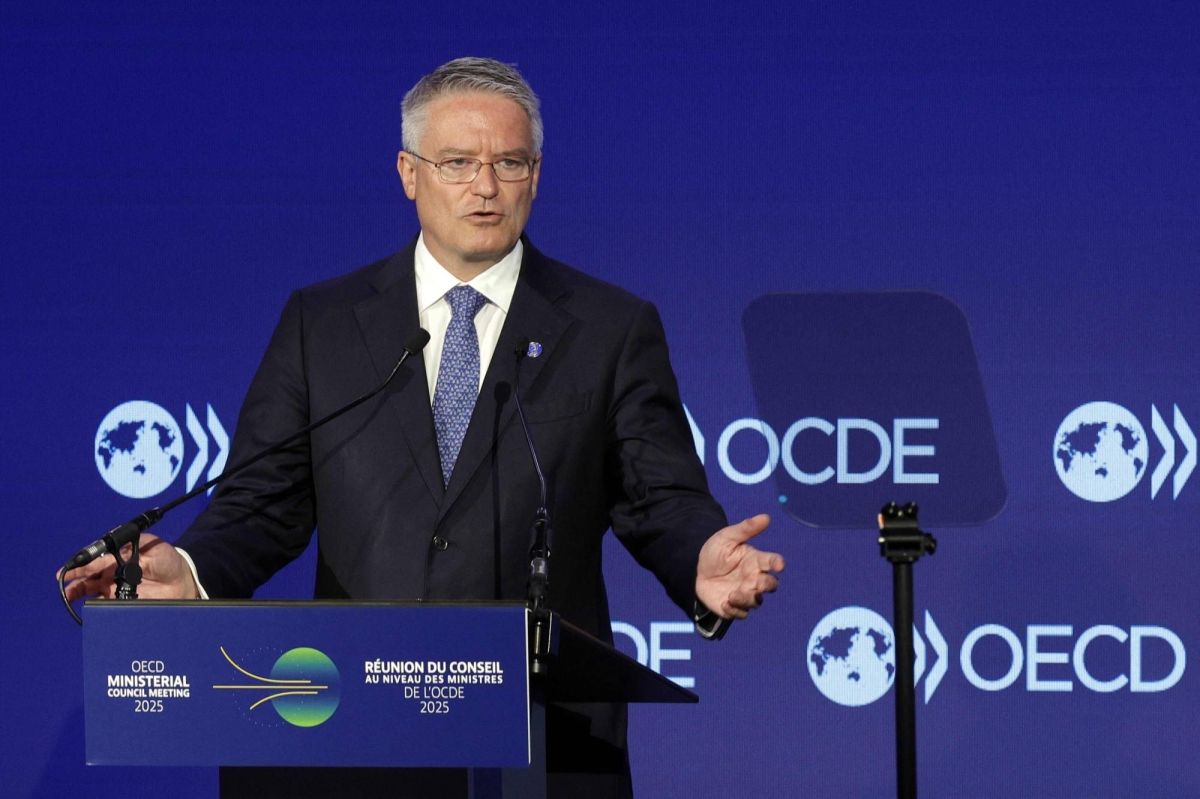
The Organisation for Economic Co-operation and Development (OECD) is a group of 38 countries working together to promote policies that improve economic and social well-being worldwide. Founded in 1961, the OECD provides a platform for governments to share experiences and seek solutions to common problems. Headquartered in Paris, France, this organization tackles issues ranging from education and employment to trade and environment. But what makes the OECD unique? Its ability to gather data, analyze trends, and offer policy recommendations helps member countries make informed decisions. Want to know more? Here are 12 fascinating facts about the OECD that highlight its impact and importance.
What is the OECD?
The Organisation for Economic Co-operation and Development (OECD) is an international organization that works to build better policies for better lives. It brings together governments from around the world to discuss and develop economic and social policies.
-
Founded in 1961: The OECD was established on September 30, 1961, replacing the Organisation for European Economic Co-operation (OEEC), which was created to administer the Marshall Plan after World War II.
-
Headquarters in Paris: The OECD's headquarters are located in Paris, France. This central location helps facilitate international cooperation and dialogue.
Member Countries
The OECD has a diverse membership that includes many of the world's most developed countries. These members work together to address common challenges and promote economic growth.
-
38 Member Countries: As of 2023, the OECD has 38 member countries, including the United States, Canada, Japan, Germany, and Australia. Each member country must adhere to the principles of democracy and a market economy.
-
Global Reach: Although primarily composed of developed nations, the OECD also engages with emerging economies like China, India, and Brazil through various programs and partnerships.
Key Functions
The OECD performs several critical functions that help shape global economic policies and practices. These functions include data collection, policy analysis, and the promotion of best practices.
-
Data Collection and Analysis: The OECD collects and analyzes data on a wide range of economic and social issues. This data helps governments make informed decisions and develop effective policies.
-
Policy Recommendations: Based on its research, the OECD provides policy recommendations to member countries. These recommendations cover areas like education, health, and the environment.
-
Peer Reviews: The OECD conducts peer reviews, where member countries evaluate each other's policies and practices. This process helps identify best practices and areas for improvement.
Major Reports and Publications
The OECD is known for its comprehensive reports and publications, which provide valuable insights into global economic trends and issues.
-
Economic Outlook: The OECD Economic Outlook is a biannual report that provides analysis and projections for the global economy. It covers major economic trends and offers policy recommendations.
-
Better Life Index: The Better Life Index is an interactive tool that allows users to compare well-being across countries. It considers factors like income, education, health, and work-life balance.
Impact on Global Policies
The OECD's work has a significant impact on global policies and practices. Its recommendations and standards are widely respected and often adopted by governments around the world.
-
Anti-Bribery Convention: The OECD Anti-Bribery Convention, adopted in 1997, aims to combat bribery of foreign public officials in international business transactions. It has been ratified by 44 countries.
-
Tax Policy: The OECD plays a crucial role in shaping global tax policy. Its Base Erosion and Profit Shifting (BEPS) project addresses tax avoidance strategies used by multinational companies.
Future Challenges
The OECD continues to evolve and address new challenges in the global economy. It remains committed to promoting sustainable economic growth and improving the well-being of people worldwide.
- Digital Economy: The OECD is actively working on policies to address the challenges and opportunities presented by the digital economy. This includes issues like data privacy, cybersecurity, and digital taxation.
Final Thoughts on OECD Facts
Understanding the OECD gives you a clearer picture of global economic trends. This organization, with its 38 member countries, works to promote policies that improve economic and social well-being worldwide. From setting international standards to providing a platform for comparing policy experiences, the OECD plays a crucial role in shaping global economic policies.
Knowing these facts helps you appreciate the impact of international cooperation on economic growth and stability. Whether it's through their extensive research, data collection, or policy recommendations, the OECD's work influences many aspects of our daily lives.
So next time you hear about the OECD, you'll know it's not just another acronym. It's a key player in the global economy, working behind the scenes to make the world a better place. Keep these facts in mind, and you'll have a deeper understanding of how interconnected our world truly is.
Was this page helpful?
Our commitment to delivering trustworthy and engaging content is at the heart of what we do. Each fact on our site is contributed by real users like you, bringing a wealth of diverse insights and information. To ensure the highest standards of accuracy and reliability, our dedicated editors meticulously review each submission. This process guarantees that the facts we share are not only fascinating but also credible. Trust in our commitment to quality and authenticity as you explore and learn with us.
